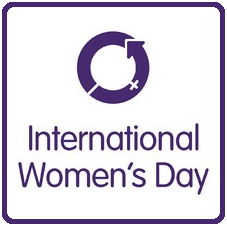Today is International Women’s Day, and we’re making a #pledgeforparity.
Women in business can experience gender bias on a daily basis, whether or not it’s intended. As of October 2015, women made up only 23.5% of directorships. When it comes to top executive roles on FTSE 100 companies the figures are even more disheartening, with women accounting for only 8.6% of the total.
We’re all well aware of the significant pay gap – for every hour worked, women earn just 81p of each pound earned by men – but it’s also worth considering recent studies finding that women in the workplace are often expected to take on more of the ‘office housework’ duties. These include things like making tea and coffee, organising social events and taking notes during meetings. Kathleen Elkins, writing for Business Insider UK suggests that ‘when a man says no [to these tasks], he faces no negative consequences; he is regarded as “busy”, while a woman would be considered “selfish”.’
Small business
Small business can seem like a more level playing field – especially with the growing number of sole traders, partnerships and limited companies started and run solely by women. However women often face more challenges than men both in setting up and growing their business.
Pitching and networking can be a challenge for any entrepreneur, however these processes can be vital to achieving investment and growing a solid client base. Unfortunately, female entrepreneurs are at a disadvantage on both counts.
Alison Wood Brooks, a social psychologist at Harvard Business School, found in her study that investors were 60% more likely to invest in men’s pitches than women’s. Furthermore, perceived attractiveness lent the male pitchers an advantage, but not the female.
Another study from 2014 suggests that men who build and maintain good business connections tend to receive more help (and help of a higher value), than women with the equal number of connections. It also found that their career trajectories tended to be higher.
Nearly there…
While we might not all experience outright sexism on a day-to-day basis, gender inequality has a greater impact on our lives than you might think. Men in the UK earned £516 billion last year between them, whilst women earned only £272 billion. Bringing more women into the workplace, onto boards and into equivalent pay-grades and positions as men will boost our economy – the Women’s Equality Party believe that our economy could grow by an extra 10% by 2030 if women were allowed to reach their full potential in the workplace.
It’s a long road though, especially when just 29% of MPs are female. At the current rate of change it will be at least 50 years before we see a gender balance in government, among judges or in business.
Pledge for Parity
So that’s why we’re pledging for parity – and we’d encourage you to do the same! Visit internationalwomensday.com/Pledge to promise to help women and girls achieve their ambitions, to challenge conscious and unconscious bias, to call for gender balanced leadership, to value women and men’s contributions equally and to create inclusive and flexible cultures. There’s also a wealth of information about putting your pledge into action and the benefits to society that gender equality can bring.


